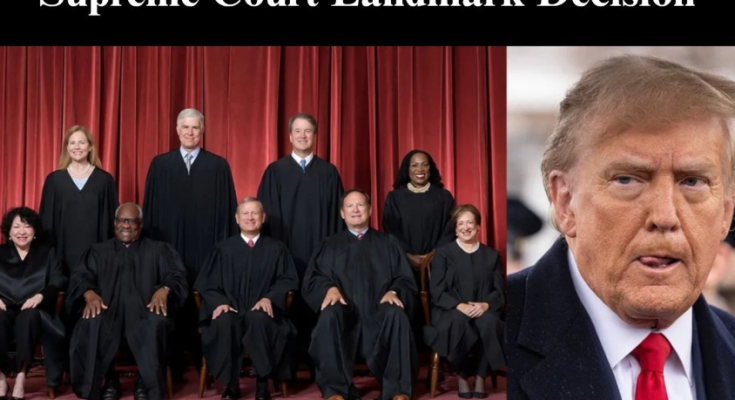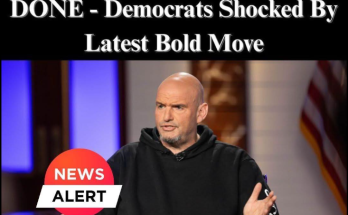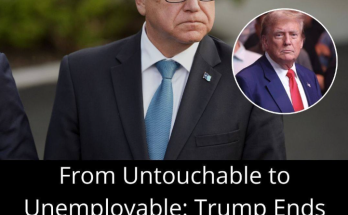
This article may contain commentary
which reflects the author’s opinion.
The U.S. Supreme Court announced on Monday that it will look at a contentious immigration policy from the first Trump administration that turned away people who wanted to claim asylum before they even set foot on American land. This will be the first big immigration policy issue of the term.
The government must process asylum seekers who arrive at ports of entry, according to federal legislation. But in 2018, President Donald Trump’s first administration started a strategy called “metering.” Under this policy, border officials would turn away those who wanted to seek asylum and send them back to Mexico before they could enter the US.
A nonprofit that fights for immigrants’ rights, Al Otro Lado, and several asylum seekers sued in California to stop the program. The migrants won in an appeals court in San Francisco, and the Trump administration appealed to the Supreme Court in July.
At least for now, the lawsuit doesn’t have much of an effect on the real world. The Biden administration got rid of “metering” in favor of less strict rules that many said made the border situation worse.
But the Trump administration didn’t agree with that rationale. They told the Supreme Court that “this administration and future administrations should keep the option of reviving that practice when border conditions justify doing so.”
In that way, the Supreme Court’s decision to consider the case was already a victory for Trump, CNN noted.
The 9th US Circuit Court of Appeals, which is split, said that federal law says that border agents must check asylum seekers who arrive at ports of entry, even if they didn’t cross the border. The Trump administration said in its appeal to the high court that this can’t be right.
“In ordinary English, a person ‘arrives in’ a country only when he comes within its borders,” US Solicitor General D. John Sauer told the court. “An alien thus does not ‘arrive in’ the United States while he is still in Mexico.”
But the groups supporting Al Otro Lado said that reading would make a mockery of the asylum process, empowering officials to render “inspection and asylum processing requirements wholly inoperable at ports of entry – the designated places where noncitizens may lawfully come into the United States – by simply blocking asylum seekers from stepping on U.S. soil.”
Next year, the court will hear arguments in the case and make a ruling by the end of June.
The nation’s highest court has been busy lately.
The U.S. Supreme Court approved the Trump administration’s request to pause a lower court injunction that had blocked deportations of individuals to third countries without prior notice.
The decision marks a near-term victory for the administration as it aims to implement its immigration crackdown swiftly.
The Court ruled 6-3 in favor of staying the injunction, with Justices Sonia Sotomayor, Elena Kagan, and Ketanji Brown Jackson dissenting.
The case involved a group of migrants contesting their deportations to third countries—nations other than their countries of origin.
Earlier this month, lawyers representing these migrants urged the Supreme Court to uphold a ruling by U.S. District Judge Brian Murphy, who had ordered the Trump administration to keep all migrants facing deportation to third countries in U.S. custody until further review.
Murphy, based in Boston, oversaw a class-action lawsuit brought by migrants challenging deportations to countries such as South Sudan, El Salvador, Costa Rica, Guatemala, and others that the administration has reportedly considered in its ongoing deportation efforts.
Murphy ruled that migrants must stay in U.S. custody until they have the opportunity to undergo a “reasonable fear interview,” allowing them to explain to U.S. officials any fears of persecution or torture if released into the country.


